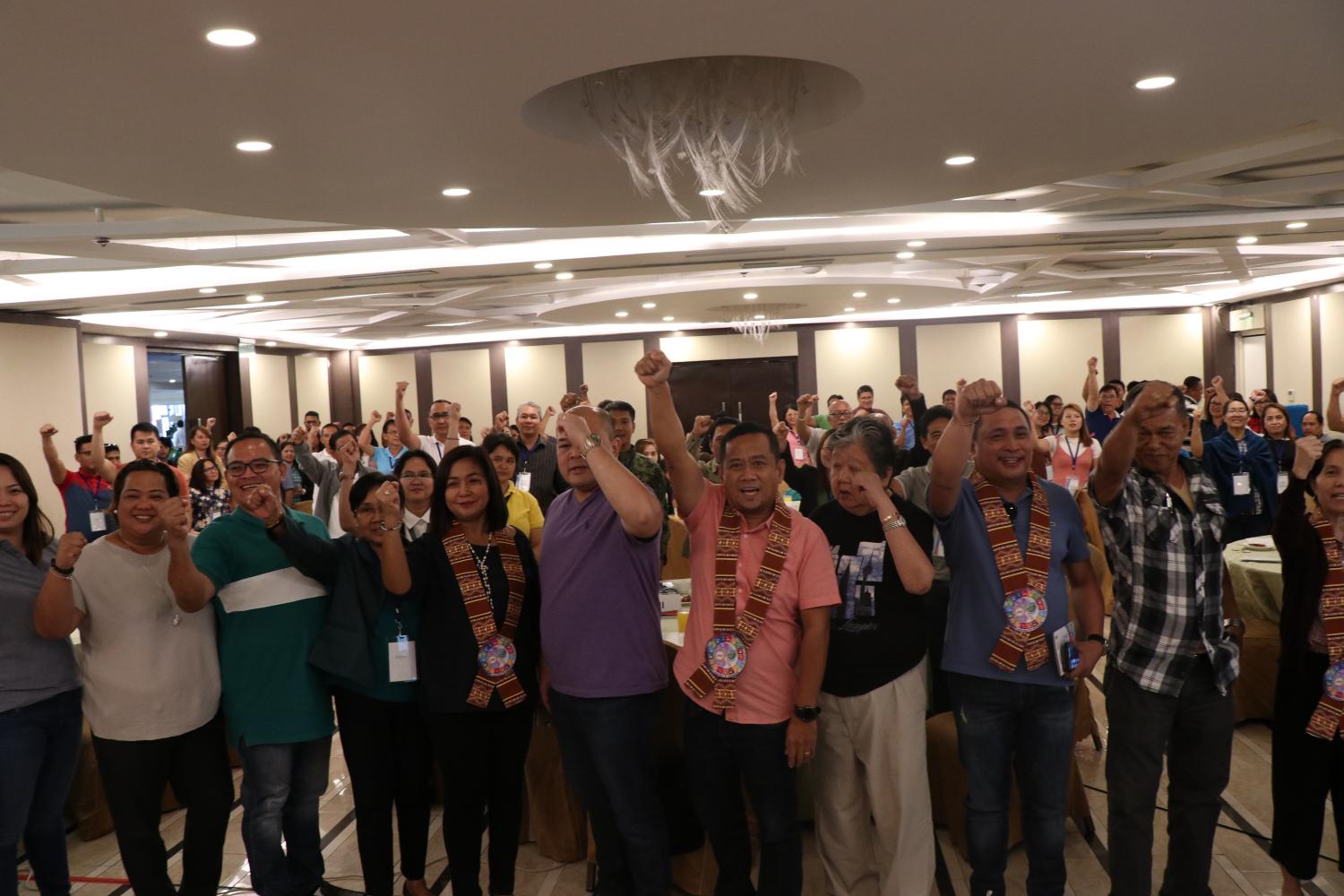
Department of the Interior and Local Government XII Regional Director Josephine Cabrido-Leysa CESO III gave assurance on the Department’s full support in Sarangani’s bid to localize the Sustainable Development Goals (SDGs) and help eradicate extreme poverty and hunger by 2030 through the Roads2SDGs program.
Regional Director Leysa made her pledge during the SDG Localization Commitment Signing Ceremony facilitated by DILG XII and Holistic Undertakings Bridging Solutions for Governance (G-HUBS) at Greenleaf Hotel, General Santos City last January 15, 2020.
Sarangani Governor Steve Chiongbian-Solon led the pledge and commitment signing together with Regional Director Leysa, DILG – Sarangani Province OIC-Provincial Director Samuel Camaganacan, and UNDP Country representative Lea Cea.
“We are committed to sustainable development goals. It’s very important that, at least, we visualize and verbalize what are these so that lahat ng ginagawa natin pwede nating e-link or e-attribute sa mga goals natin para alam po natin kung saan tayo nagkukulang; saan tayo kailangan dumagdag pa,” said Governor Solon.
Local officials and employees from the municipal and provincial government units, non-government organizations, and national government representatives also joined and affixed their signatures as proof of their commitment to SDG localization.
Ms. Cea lauded the province’s support to SDGs while citing “fearless leadership and “political will” as key to achieve the Roads2SDs and 2030 agenda. A total of 193 countries, including Philippines, formulated the 17 targets of the SDGs as results of their dream to make the world a better place, she explained.
Roads2SDGs is a program of the DILG and UNDP that aims to partly address the poor state of provincial roads across the country through good governance while providing support to quality assurance. The program believes that SDGs can help improve road governance and accessibility to far-flung communities and access to basic needs, thus attaining SDGs.
The program “enhances the planning prioritization, design implementation, and maintenance of infrastructure projects to achieve the SDGs while incorporating the elements of partnership building, climate change and disaster risk reduction, gender mainstreaming, and citizen’s participation for transparency and accountability, among others, “ Regional Director Leysa said.
A two-day orientation-workshop on SDG localization followed the commitment signing ceremony to familiarize the local officials and employees of the SDG tools and complete their data gaps. Representatives from the national line agencies assisted in completing these data gaps.
Regional Director Leysa hopes that through the orientation-workshop, the local government units will further appreciate and understand the Roads2SDGs and create a strong partnership with other stakeholders to attain the 2030 agenda.




